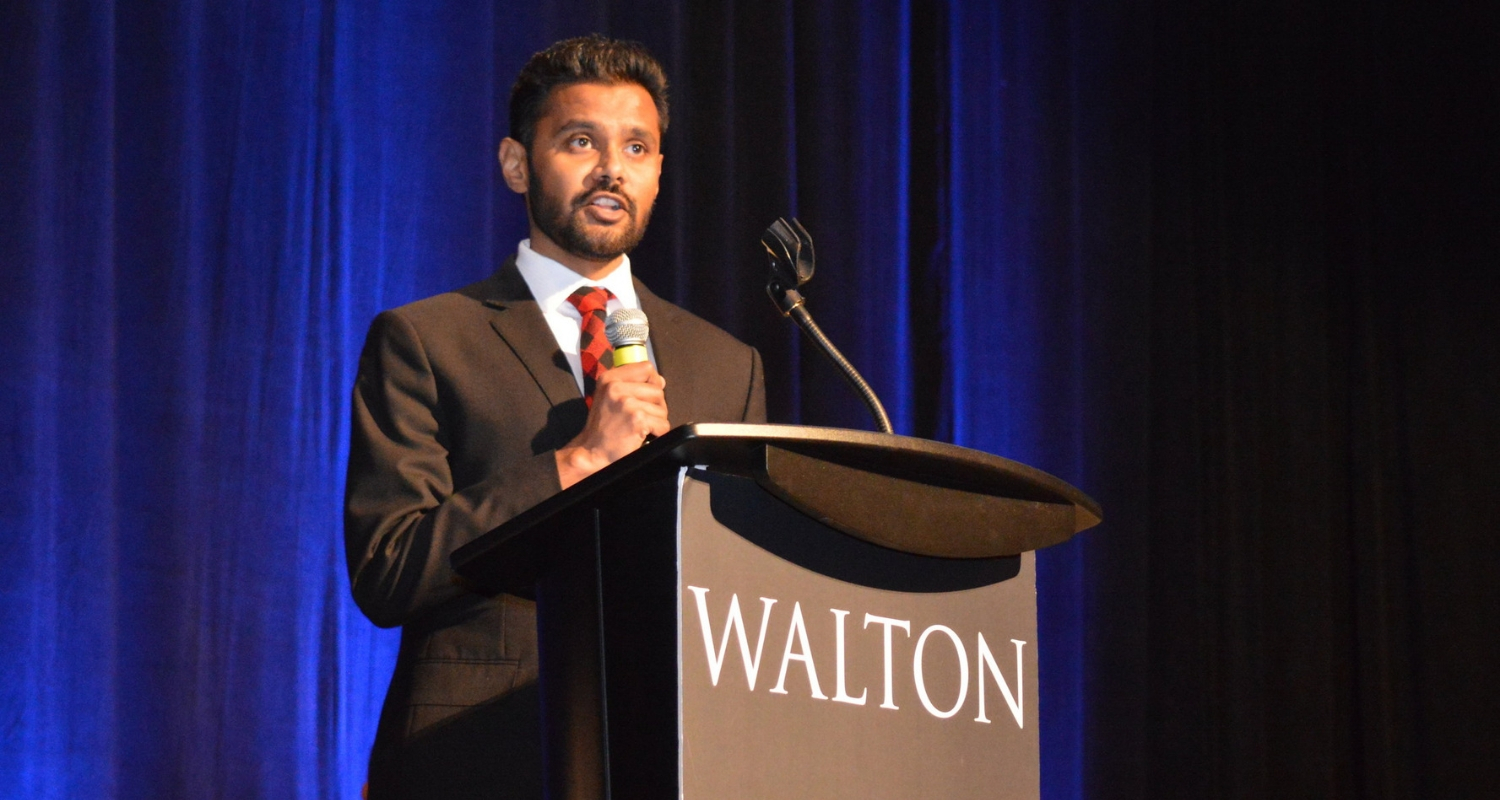A University of Arkansas economist predicted Northwest Arkansas’ job growth would remain solid throughout 2019.
The prediction made by Mervin Jebaraj that the Fayetteville-Springdale-Rogers Metropolitan Statistical Area will add 5,000 jobs this year came during the Business Forecast 2019 Luncheon in Rogers. Jebaraj is director of the university’s Center for Business and Economic Research.
Jebaraj suggested driving innovation and supporting entrepreneurs would be critical to continuing the region’s high rate of job growth.
He said the 5,000 Northwest Arkansas jobs would account for a big portion of the 11,000 new jobs that are expected statewide in 2019. If the pattern of new jobs in 2019 mirrors 2018, almost all of the additions will occur in the metropolitan areas of Northwest Arkansas, Little Rock and Jonesboro.
The predictions came with a caveat: Any serious escalation of trade wars will slow job growth and cause Arkansas to fall short of 11,000 additional jobs.
Two other luncheon presenters — the Walton Family Foundation’s Ross DeVol and Intel Corporation head economist Carolyn Evans — made comments about the national and international economies.
Most of the more than 1,000 people who attend the event are Arkansas business people interested in how the Natural State and its regional economies are performing. Jebaraj presented mostly good news for the largest metropolitan areas.
Northwest Arkansas remains the state’s fastest-rising economic region. As of December 2018, the region provided about 261,700 non-farm jobs. That’s twice as many jobs as there were in the region in 1994. The region’s only real economic pause came during the nationwide recession that started in December 2007.
The region’s unemployment rate isn’t likely to go much below the current 2.5 percent, but sustaining such a low rate should be considered a good indication of the economy’s overall health, Jebaraj said.
Jebaraj’s regional prediction of adding 5,000 jobs this year comes on the heels of a solid prediction at the business forecast luncheon last year. He’d expected to see 6,000 new jobs, and federal statistics show he missed the mark by just 200. There were 5,800 created in Northwest Arkansas last year.
Jebaraj’s comments that regions would need to invest heavily into entrepreneurs and innovation to advance job growth in the future were consistent with the goals and objectives described in the Greater Northwest Arkansas Development Strategy, a plan made public by the Northwest Arkansas Council in July.
DeVol, a Walton Family Foundation fellow recognized as one of the nation’s top economists, talked often during his presentation about the importance of investing in entrepreneurs, of advancing university research and of seeing more commercialization occur.
- Research funding: The University of Arkansas set a record, spending $175 million on research and development projects. The spending is considered good for the region’s and the state’s economies. It’s a more than $50 million increase over the 2012 R&D spending.
- Income: Median household income is consistently rising in Northwest Arkansas and sat at $56,038 in 2017, the latest figure available. Little Rock’s amount is $53,173. Both numbers are less than the national average ($61,372), but the numbers are increasing.
Pictured at the top: Mervin Jebaraj, the director of the University of Arkansas Center for Business and Economic Research, expects Arkansas to add about 11,000 jobs in 2019. Most of those jobs will be in the Jonesboro, Little Rock and Northwest Arkansas metropolitan areas.











